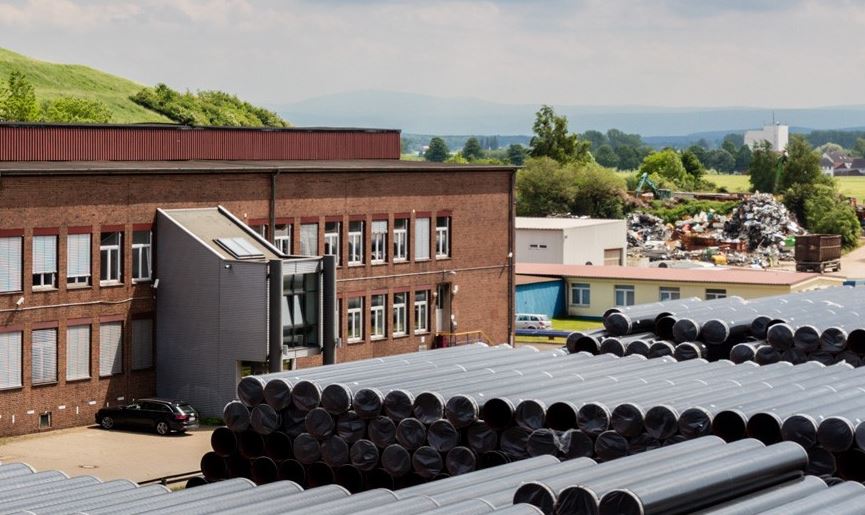A unit of Germany’s Salzgitter has secured a contract from Gasunie to supply steel pipes for a pipeline that will link the planned FSRU-based LNG terminal in Wilhelmshaven with the grid.
Under the deal Gasunie’s German unit, Mannesmann Grossrohr (MGR) would produce and deliver the pipes for the energy transport pipeline 180 (ETL 180), according to a statement by Steel producer Salzgitter.
Salzgitter said the Brunsbuettel-Hetlingen pipeline would stretch for some 54 kilometers.
It will have an annual capacity of 7.5 to 10 billion cbm, providing an alternative for sourcing natural gas from regions that have so far not had gas pipelines linking them up to the German market, it said.
Salzgitter said its unit would produce and deliver some 3,200 pipes, also capable of transporting hydrogen in the future, by February 2023.
The firm did not reveal the price tag of the contract.
This deals follows a similar contract Salzigtter won from Open Grid Europe (OGE) for a pipeline that will link the planned LNG terminal in Wilhelmshaven with the grid.
Germany to become major LNG importer
Uniper has already started building Germany’s first LNG facility in Wilhelmshaven and expects to commission it this winter.
As per the second facility, Dutch gas grid operator Gasunie recently said it expects the Brunsbuettel FSRU-based LNG import terminal to go online by the end of this year, as Germany looks to reduce reliance on Russian gas pipeline gas.
The firm’s German unit also awarded a contract for the Brunsbuettel LNG connecting pipelines to a joint venture of Germany’s Friedrich Vorwerk and the Austrian Habau Group.
Germany is moving quickly with its plans to build infrastructure and become a major LNG importer, and has introduced the LNG acceleration law and chartered four FSRUs.
These vessels include the two units RWE chartered from Hoegh LNG, and the Dynagas-owned 174,000-cbm Transgas Force and Transgas Power that will go on charter to Uniper.
Such as the Uniper facility, the Brunsbuettel terminal will host one of the four chartered FSRUs as well.
RWE will probably install one of the two FSRUs it chartered from Hoegh.
Besides these four FSRUs, Deutsche ReGas, which is developing an LNG import terminal at the German port of Lubmin, recently signed a term sheet with French energy giant TotalEnergies under which the latter would provide an FSRU for the project.
Also, German energy firm E.ON has joined forces with Belgium-based Tree Energy Solutions (TES) and France’s Engie to deploy another unit in Wilhelmshaven.
Should all these projects materialize, at least six FSRUs would serve Germany in the future.

